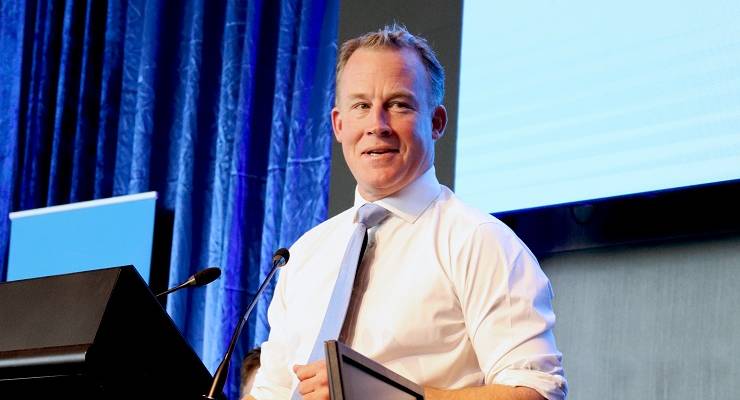
Will Hodgman’s surprise resignation has brought Tasmania’s long running political dynasty to an end, and represents that rarest of things in modern Australian politics: an exit on his own terms.
This is particularly true of state premiers, who in recent years have had a tendency to burn through their early popularity, or, at best, hang around on the backbenches for a few months after leading their party to defeat.
On the numbers alone, Hodgman’s achievements are remarkable. Firstly, he was the Liberal party leader for 14 years, a phrase that in itself feels old- fashioned and incongruous, like riding a penny farthing to work or cocaine in a soft drink.
Tasmania has traditionally been an unhappy hunting ground for the Liberals, but Hodgman took over during a particularly low ebb, after the party’s miserable haul of seven seats in the 2006 election. He hauled the party back to parity in 2010, and in 2014 led them to a comprehensive victory, becoming only the fifth non-Labor premier in the state in the past 80 years.
In 2018, focusing on Tasmania’s strong economic performance under his watch, he achieved another big win — only the second time in the state’s history that the Liberals had achieved successive parliamentary majorities.
The victory was not without controversy. Having received nearly half their donations in the lead up to the election from gaming and hospitality interests, the Liberals promptly turned around and more than tripled the Tasmanian Hospitality Association’s funding. A secret policy to change gun laws in the state was ditched after the election.
On economic matters, Hodgman’s record is impressive — Tasmania surged to the second-most economically healthy state in the country under his watch.
So what next? Hodgman, a personal injuries lawyer before politics, has said he “has no job to go to”. But other examples show the sky’s the limit for former state premiers with time on their hands.
Mike Baird (NSW), presumably tired of the dysfunction and controversy that beset his last year as premier, became an executive of NAB.
Bob Carr (NSW), within days of retiring as NSW premier, registered a lobbying business, before going back into politics as Julia Gillard’s foreign minster. He is now Industry Professor of Climate and Business at the University of Technology Sydney.
Jay Weatherill (SA), having co-authored a withering review of Labor’s 2019 election loss, has taken up a CEO role at Twiggy Forrest’s Thrive by Five early education organisation.
Denis Napthine (VIC) last year chaired the Regional Education Expert Advisory Group, which delivered the National Regional, Rural and Remote Tertiary Education Strategy.
Anna Bligh (QLD) has been CEO of the Australian Banking Association since 2017, following a brief stint as CEO of the NSW YWCA.
Steve Bracks (VIC), after a series of roles on advisory boards and a brief period as Australian consul-general in New York, will take over as chancellor of Victoria University in January next year.
Adam Giles (NT chief minister) became a pundit on Sky News. As you may remember, it hasn’t always gone great.








Perhaps a job at Bet365 or Tabcorp or Sportsbet or Brokelads or William Hill or Easybet?
Thanks for the link, but why not spell it out in the article – he was beholden to the gambling lobby?
So Tasmania is the second most healthy economic state. it does not look that way to most of those who live here. The health system can best be described as non-functional, the education system produces 50% of students who leave school functionally illiterate and innumerate. Public housing is not available to the most needy, and the gambling industry runs the government. Nepotism and corruption are alive and very well at all levels of society and public service. And tourism operators are determined to destroy the attractions that draw visitors.
And it is one of the most expensive places to live.
Is Tassie still an incestuously owned/influenced by a few family mafia interests or moved on to a little big cosmopolitan real estate paradise ? Excuse my haven’t been there for decades either/or . I’m sure there are a lot of little delightful living spaces in between .
Sorry, but what a load of dribble. Why even bother having a State by state section on Crikey if this is the level of analysis you get!? No mention of the public health crisis down here – sorely absent, especially when the economy has been talked up in the article! If our economy is that sound under Hodgman, then the state of our public hospitals & schools is a crime. Not to mention that trickle down effect The LNP are so fond of these days, must have missed most house holds!